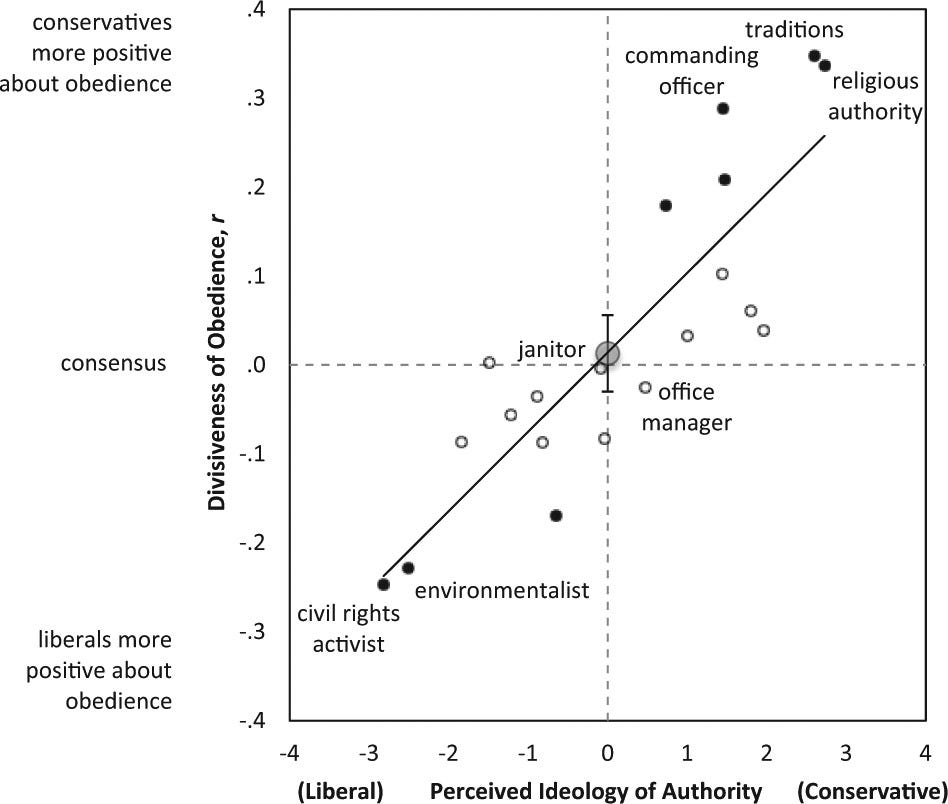Who's More Obedient, Left or Right?
It depends who's giving the orders

In Case You Missed It…
It’s long been a truism in social psychology that obedience is central to the conservative mindset. Conservatives, we’re told, are deferential to authority, whereas liberals are independent and rebellious, unafraid to question the status quo.1
But a fascinating 2013 paper by Jeremy Frimer and colleagues casts serious doubt on this view.
The researchers pointed out that most measures of obedience ask people about their willingness to obey conservative authorities. The problem with this is that it confounds obedience with the political leanings of the authorities seeking it. Adding insult to injury, when people are asked about obedience in the abstract, they tend to picture conservative authorities - again confounding obedience with political valence.
To sidestep these problems, Frimer and his team revisited the topic, but asked participants not only about their willingness to obey conservative authorities, but also about their willingness to obey liberal ones.
Doing so led to a striking conclusion - one that overturns a decades-old consensus in social psychology: Liberals are just as obedient as conservatives, but just to different authorities. Conservatives are more likely to defer to conservative authorities, including military officers and religious leaders. Liberals, meanwhile, are more likely to defer to liberal authorities, such as civil rights activists and environmentalists. And when an authority is seen as politically neutral - like, say, an office manager - liberals and conservatives are about equally likely to obey. These findings are shown in the graph below.
In short, it’s not that the Right values obedience whereas the Left values independence. It’s that everyone defers to people they see as legitimate authorities, and resists those they think are not. We just have different ideas about who belongs to each group.
You can access the paper here, or read it for free here.
Follow me on Twitter/X for more psychology, evolution, and science.
Coming Soon to The Nature-Nurture-Nietzsche Newsletter…
Can Life Events Change Your Personality?
Beyond Body Count: How Many Past Partners Are Too Many?
12 Things Everyone Should Know About the Big Five Personality Traits
How You Can Support The N3 Newsletter
If you like what I’m doing with The Nature-Nurture-Nietzsche Newsletter and want to support my work, there are several ways you can do it.
Like and Restack: Click the buttons at the top or bottom of the page to boost the post’s visibility on Substack.
Share: Send the post to friends or share it on social media.
Upgrade to Paid: A paid subscription gets you:
If you could do any of the above, I’d be hugely grateful. Reader support is what keeps this newsletter going and growing.
Thanks a lot!
Steve
Related Reading From the Archive
I’m using the US nomenclature here, where liberals means more or less “people on the left of the political spectrum.”



I think the last five years have definitely shown that the left obeys leftist authorities. I've seen it most acutely in the book world where so many writers left of center were cast aside for having the wrong politics—for not being sufficiently leftist—for disobeying the party line.